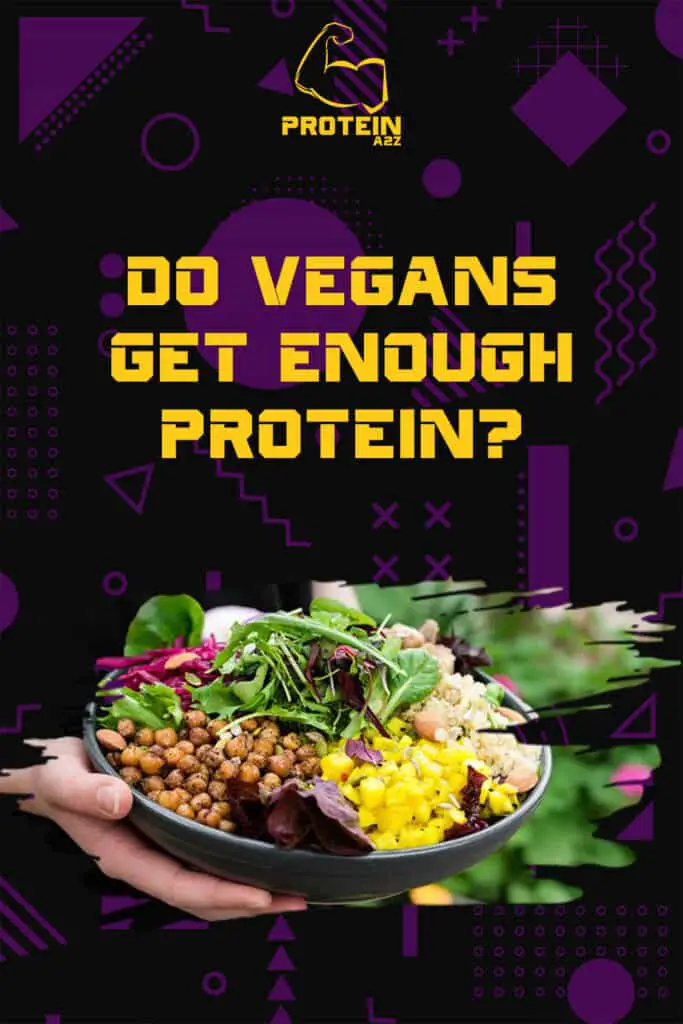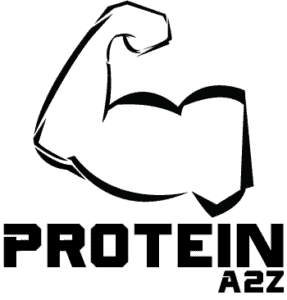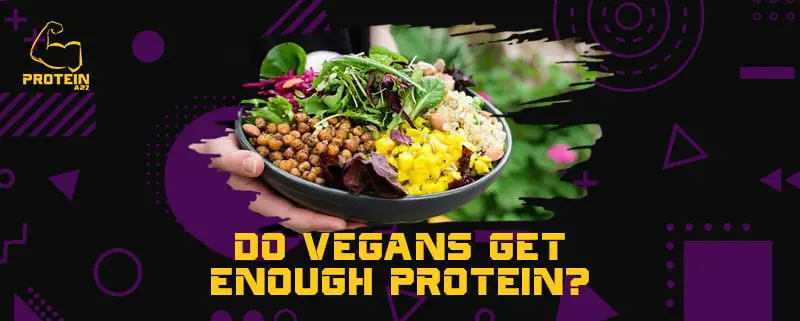In recent years certain lifestyles like vegetarianism and veganism have become popular. Studies show that it is hard, but not impossible, to get enough protein from plant sources alone. Vegans need to combine many protein sources in order to attain all of the amino acids needed by our bodies, since plants are not complete protein sources.
Table of Contents
How do vegans get enough protein?
It is not hard to get enough protein as a vegan since many plant-based foods are packed with it. On the other hand, there are not any complete protein sources in the vegan world. Unlike eggs, dairy, meat and fish, plants do not contain all the essential amino acids that our bodies need in order to function properly and build muscle.
Therefore, a healthy vegan or vegetarian diet requires the person to strictly calculate the amount of each amino acid in their diet, in order to be sure of whether their body is getting what they need.
A combination of the following protein-rich foods is usually what most vegans go for: soybeans, tofu, chickpeas, lentils, tempeh, nutritional yeast, chia, quinoa seeds, peanut butter, oats, sunflower seeds, and nuts.
They get minerals and vitamins from vegetables and fruits, as well as oils from refined vegan products like tofu.
Is there something in meat that vegans cannot get anywhere else?
The lack of B12 outside the meat world is the main issue for vegans and vegetarians. Moreover, vegans and vegetarians should know that B12 fortified foods and supplements are all a variation of meat products and derived from animal products.
No vegetable, fruit or seeds contain B12 and it is much needed by our bodies for repairing our nerve system, making DNA, preventing fatigue and preventing anemia. Moreover, reaching the daily recommended intake levels of B12 also prevents depression, as it is strictly connected to our nerve system working properly.
FAQs about B12 and amino acids
What would happen if you do not consume enough B12?
The main side effects of not having enough vitamin B12 in our bodies are fatigue, constipation, weight loss and even reaching the state of megaloblastic anemia. Moreover, in a B12-deprived individual might develop nerve problems eventually. Depression and dementia can also be caused by a B12 deficiency, even in otherwise-healthy adult individuals.
What are the side effects of not getting enough amino acids?
Amino acid deficiency can lead to a less efficient immune system, issues with digestion, depression, mental illness, fertility issues, and many other effects. Different essential amino acids play different roles in our bodies, and depending on which one is lacking, different problems might occur.
What amino acids are scarce in plants?
Among the essential amino acids, lysine, methionine, and tryptophan are scarce in most plants and found mostly in legumes like lentils and cereals. Therefore, as a vegan, it is necessary to incorporate lentils and cereals into your diet. Otherwise, you would most likely suffer weight loss and experience headaches and other negative symptoms.
Do vegans eat eggs?
If you include eggs to your diet you aren’t really a vegan. Some that call them self vegans will still chose to add some eggs to there diet. This can be directly as eggs or some might also choose to buy protein powder based on eggs.
Read about the best egg protein powder.

User comment about vegans and getting the right amount of protein
How Vegans and Protein Can Help Your Health
For most people, the need to vegans and protein is a non-issue. After all, don’t vegetarians get plenty of protein anyway? To a degree, but there are some vegans who have eating habits that put them at risk for vitamin deficiency.
It’s important that vegans alike get their daily requirement of protein, but this can be tricky. The problem is that meat products tend to contain large amounts of fat, which can make us feel fuller and thus less likely to need to eat more vegetables. Fats are actually very fattening – they contribute to our obesity epidemic.
Dairy milk and eggs offer good protein
Eating too much red meat is also associated with diabetes and other health conditions, so it’s not a good idea to load up on it. Fortunately, making dietary changes doesn’t have to mean giving up one hundred percent of your favorite foods: Dairy milk and eggs offer many protein-filled options that vegans and vegetarians can enjoy.
In order to meet the daily requirement of protein for an adult, you would need to eat at least two eggs, one cup of milk, two pounds of cooked beans, one teaspoon of soy sauce, and one ounce of nuts or seeds. If you’re focusing primarily on building muscle, you can add one or two extra eggs, or you might want to consider soy and bean milks instead. By replacing animal protein with vegetarian protein, you can significantly reduce your risk for health issues related to excess protein in your diet.

